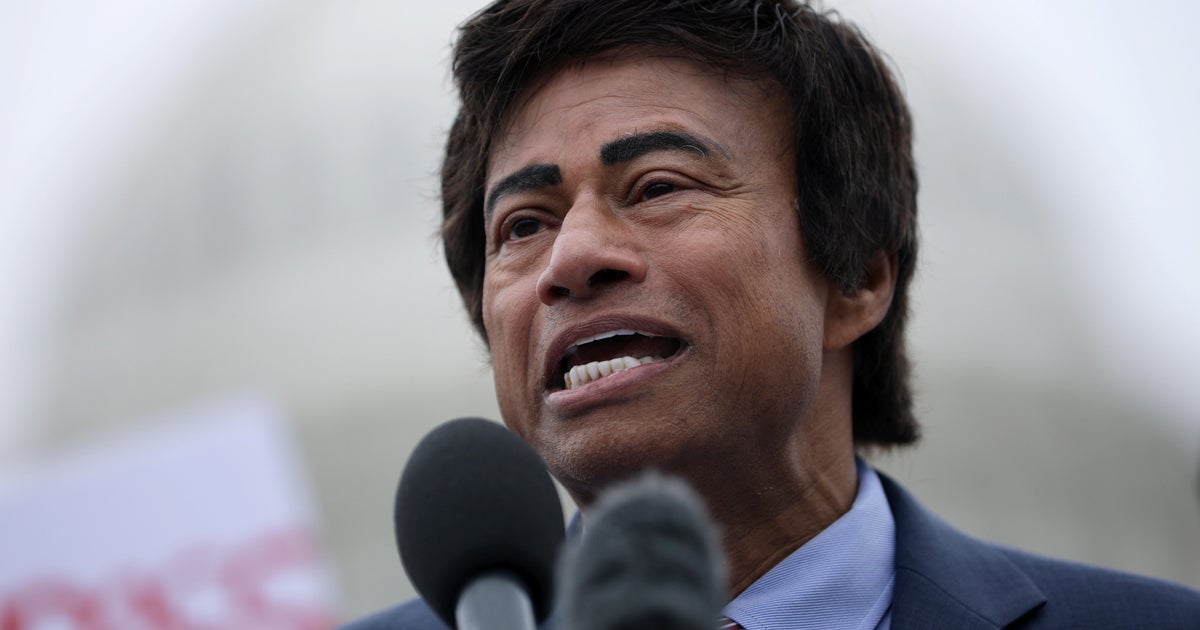National Economic Council director says "decisive action" necessary to prevent further financial fallout
White House press secretary Jen Psaki and National Economic Council director Brian Deese held a press briefing on President Joe Biden's second full day in office to discuss economic relief plans.
Psaki and Deese discussed the president's $1.9 trillion coronavirus aid proposal. The package includes $400 billion for efforts to stop the spread of COVID-19 and increase vaccine distribution; over $1 trillion to assist families needing direct financial support; and $440 billion in emergency funds for cash-poor small businesses and communities. The White House's plan, which Mr. Biden said he plans to send to Congress soon, includes additional $1,400 direct payments to millions of Americans, on top of the $600 payments approved in December under the previous Congress.
Deese said "decisive action" is needed to prevent further financial fallout from the pandemic. "We're at a precarious moment for the virus and the economy," he warned. "Without decisive action, we risk falling into a very serious economic hole, even more serious than the crisis we find ourselves in."
He said he plans to hold a call on Sunday with a bipartisan group of senators to discuss the next round of federal aid. While Biden's $1.9 trillion plan has garnered widespread Democratic support, Republicans have previously balked at stimulus bills proposed in the House with such high price tags.
Deese addressed criticism from some Republicans that the federal government has already provided sufficient relief through its previous $900 billion COVID-19 economic relief package. President Joe Biden's top economic aide told reporters that the previous relief came after months of inaction, and was merely "filling a hole." He said there is not an issue of "acting too much," and called the president's plan an "appropriate response to an unprecedented economic circumstance."
"We waited for six months or more before Congress acted, so really a lot of what that $900 billion was doing was filling a hole in the second half of 2020 that desperately needed to be filled," Deese said in reference to the package passed at the end of the last year. "This is not an issue of Congress acting too much, it's an issue of not acting enough."
As for Republican concerns that resources from the earlier bill have not yet been fully doled out, Deese told CBS News senior White House and political correspondent Ed O'Keefe those funds were "addressing economic challenges, or public health challenges, that were in the rearview mirror."
"These provisions have been designed on an assessment of need, and we think they're going to absolutely be necessary," he said, pointing to a Moody's Analytics study which found that America could return to full employment a year ahead of schedule if Biden's plan is passed. "Looking forward, we're quite confident that this is the prudent assessment of needs."
He also made note that President Biden is signing two executive orders on Friday in an effort to stabilize the economy before congressional assistance comes through. One order will increase federal food assistance and streamline the delivery of stimulus checks. Mr. Biden is asking the U.S. Department of Agriculture to allow states to increase Supplemental Nutrition Assistance Program (SNAP) benefits — commonly known as food stamps — by 15%.
Deese said the actions are not a substitute for substantial legislative relief, but will provide a lifeline to the 30 million Americans struggling with food insecurity during the pandemic.
If the bill is unable to attract enough support from Republicans, Democrats have a couple of options: they may pass it through the budget reconciliation process or by eliminating the legislative filibuster. Most bills require 60 votes in the Senate to end debate and set up a full vote on the Senate floor. A filibuster occurs when a bill doesn't receive 60 votes to end debate.
Psaki said during her first press briefing on Wednesday that Mr. Biden's "clear preference is to move forward with a bipartisan bill."
"But we are also not going to take any tools off the table for how the Senate, the House and Senate can get this urgent package done," Psaki said.
The press secretary answered questions on Friday about the Senate's undertaking of an impeachment trial while COVID relief package negotiations are ongoing. House Speaker Nancy Pelosi announced Friday that the House will send the article of impeachment against former President Trump to the Senate on Monday. Republican Senate leadership has attempted to delay the start of the trial until February, arguing that it will be rushed.
Psaki said the president has confidence that the Senate can "walk and chew gum at the same time," noting the "recent precedent" of Mr. Trump's first impeachment trial, which the Senate was able to take on while also conducting regular business.
"What cannot be delayed," she said, is providing relief to the American people.



